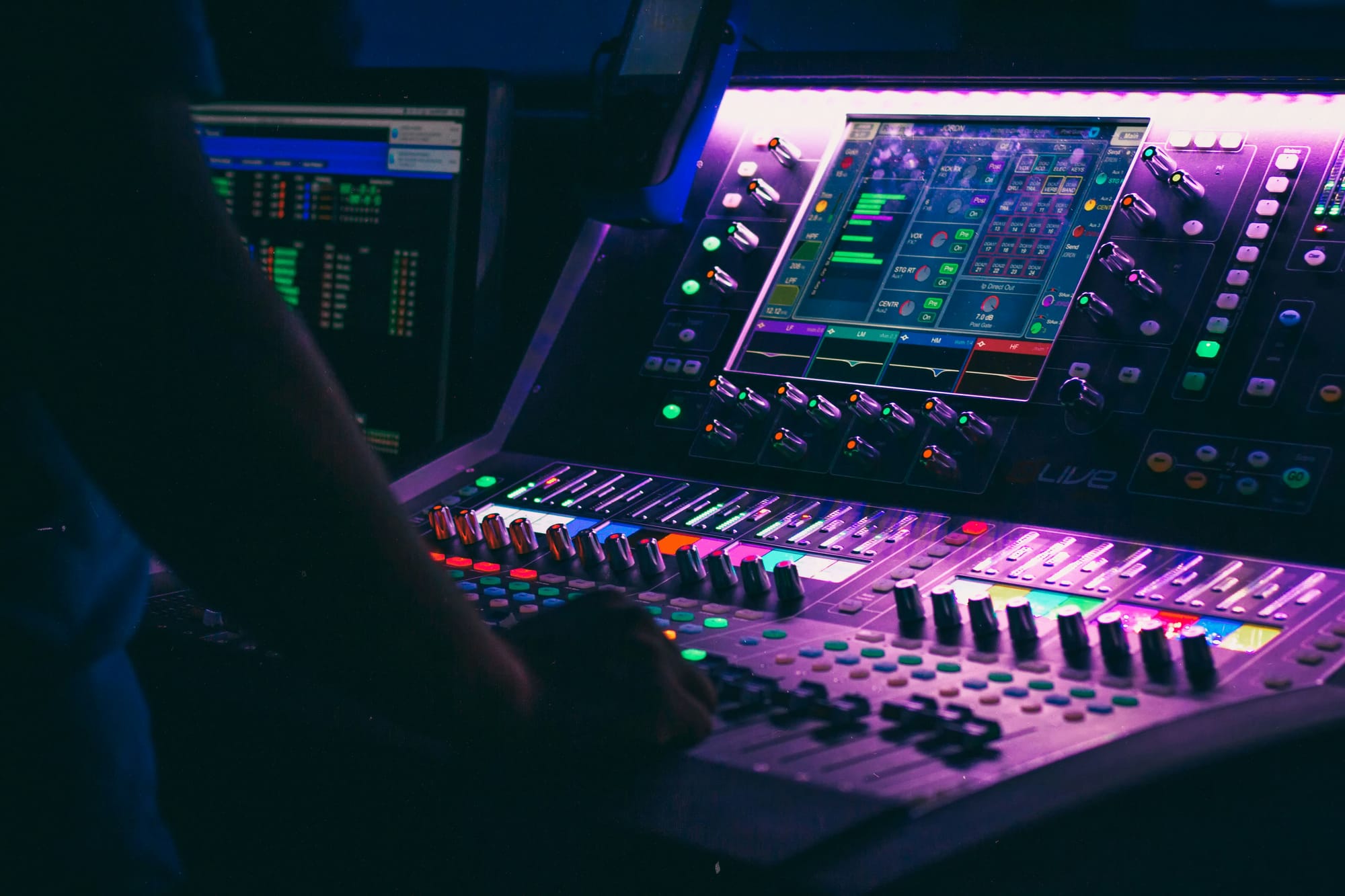
According to the U.S. Copyright Office, “a copyright is a form of protection grounded in the U.S. Constitution and granted by law for original works of authorship fixed in a tangible medium of expression.” Both published and unpublished works are eligible for copyright protection.
A copyright protects a piece of intellectual property, which is the product of creativity with rights that can be granted to the owner and transferred to another. This includes literary, dramatic, musical and artistic works. Poetry, novels, movies, songs, recordings, computer software, and architecture can all be copyrighted.
Our guide has been written to explain the purpose of copyright registration, outline the registration process and dispel myths about alternative options.
If you would like to learn more about our copyright administration services to find you unclaimed royalties, please visit our website.
In this newsletter:
- NSAI, NMPA, More Share Frustration With Spotify’s Payment Change
- Federal Judge Rejects Dismissal Motions in UMG v. Internet Archive ‘Great 78 Project’ Infringement Battle
- Appeals Court Upholds Childish Gambino Song-Theft Ruling Because of Copyright Registration Error
- Tencent Music’s Subscription Revenues Surge 39% to $500M in Q1 as Paying Subs Hit 113.5M
Spotify's recent change to its payment structure for songwriters and publishers, by bundling its music service with audiobooks, has sparked significant backlash. This reclassification is expected to reduce U.S. mechanical royalty payments by $150 million.
A $400 million copyright infringement lawsuit against the Internet Archive is moving forward after a judge dismissed several motions to halt the case.
Childish Gambino has successfully defeated a song-theft lawsuit filed over his song ‘This Is America’ for a second time. An appeals court has also rejected a copyright infringement claim made by rapper Kidd Wes because of a copyright registration error.
Now, the details...
Exploration Weekly - May 17, 2024
Compiled by Ana Berberana
NSAI, NMPA, More Share Frustration With Spotify’s Payment Change
Since it was revealed that Spotify would be changing the way it pays songwriters and publishers by acting as a bundled subscription service with the addition of audiobooks, songwriter organizations and community members have expressed their frustration with the streaming giant. Billboard recently estimated that Spotify’s reclassification from a “standalone portable subscription” to a “bundled subscription offering” will cause a $150 million cut to U.S. mechanical royalty payments, leading organizations such as Nashville Songwriters Association International (NSAI), National Music Publishers Association (NMPA) and Association of Independent Music Publishers (AIMP) to speak out. “‘Bundling’ music with other offerings without a music-only option does not comport with our view of the intent of the Copyright Royalty Board (CRB) in recent Phonorecord procedures in which the NSAI participated. Further, this move negates gains awarded to songwriters by the CRB,” NSAI shared in an open letter. “NSAI will not accept what we view as an attempt to manipulate the intent of the court through a ‘bundling’ gimmick. NSAI calls for Spotify to immediately reverse its course and offer separate music subscription choices at price points that will fairly remunerate songwriters.” NMPA President & CEO David Israelite shares, “It appears Spotify has returned to attacking the very songwriters who make its business possible. Spotify’s attempt to radically reduce songwriter payments by reclassifying their music service as an audiobook bundle is a cynical, and potentially unlawful, move that ends our period of relative peace. We will not stand for their perversion of the settlement we agreed upon in 2022 and are looking at all options.” The AIMP—including Michael Lau (National Chair and New York Chapter President), Marc Caruso (Los Angeles Chapter President), Ree Guyer (Nashville Chapter President) and Tony D. Alexander (Atlanta Chapter President)—also shared a statement. They write, “It is a deeply cynical move for Spotify to attempt to circumvent the CRB settlement agreed to by the NMPA & NSAI and DiMA in 2022 via this bundling ‘loophole,’ and further insulting that the price of a Spotify subscription will actually increase for users while cutting revenue for the songwriters who keep their business alive. This is especially problematic for independent music publishers, as they and all publishers are legally prevented from negotiating protections against bad-faith tactics such as this, while labels are allowed to do so in a free market.
Federal Judge Rejects Dismissal Motions in UMG v. Internet Archive ‘Great 78 Project’ Infringement Battle
Universal Music’s copyright infringement lawsuit against the Internet Archive is proceeding after the presiding judge rejected multiple dismissal motions. This latest development in the infringement dispute emerged in a new order from Judge Maxine Chesney. UMG Recordings (UMG), Sony Music Entertainment (SME), and others initially submitted the $400 million action in August of 2023. As we reported at the time, the suit alleges large-scale infringement in the Internet Archive’s “Great 78 Project.” As described by the non-profit, that initiative, through which north of 450,000 recordings have been made available for streaming and download, “is a community project for the preservation, research and discovery of 78rpm records.” But as the filing parties (which are also suing Internet Archive founder and chief executive Brewster Kahle, his foundation, audio engineer George Blood, and the latter’s company) see things, the project constitutes “mass infringement” and the “wholesale theft of generations of music.” The defendants moved to dismiss the suit in January of this year, with perhaps the most noteworthy of the involved arguments centering on allegedly time-barred elements of the complaint. That the RIAA had sent a cease-and-desist letter over the Great 78 Project back in July of 2020, the Internet Archive and others maintained, should render invalid “a substantial swath of alleged instances of direct infringement.” According to the highlighted order, however, the court doesn’t agree with the assessment at this stage. The 2020 RIAA “letter on which defendants here rely does not identify any specific sound recording, let alone any of the” allegedly infringed works, Judge Chesney wrote.
Appeals Court Upholds Childish Gambino Song-Theft Ruling Because of Copyright Registration Error
The US Second Circuit Appeals Court has declined to overturn an earlier ruling in a song-theft dispute between Childish Gambino and Miami-based rapper Kidd Wes. The message from the appeals court is clear: if you're going to sue for copyright infringement in the US, don't screw up your copyright registrations. Kidd Wes, real name Emelike Nwosuocha, “registered the sound recording of his song but failed to register the musical work itself”, the appeal judges explain in their ruling. When he then accused Childish Gambino, real name Donald Glover, of ripping off his 2016 song ‘Made in America’, that claim centered on the musical work not the recording. Nwosuocha thus “failed to satisfy the registration requirement before bringing this suit”. It was Glover’s 2018 track ‘This Is America’ that Nwosuocha said was a rip off of his song. “The distinctive flow” heard in the newer track, his lawsuit claimed, “is unmistakably substantially similar, if not practically identical, to the distinct and unique flow” he had employed when “recording his vocal performance of his rapping of the hook to his copyrighted work”. Last year a judge dismissed Nwosuocha’s lawsuit, partly because of registration issues, and partly because “a cursory comparison” of the two songs “reveals that the content of the choruses is entirely different and not substantially similar”. Nwosuocha then appealed. Copyright is an automatic right, meaning a creator enjoys control over their creative work as soon as that work is created, no registration is required. However, under US copyright law, it is advisable to register works with the Copyright Office, especially if you are planning on enforcing any copyrights in court. The Copyright Alliance explains, “you must file an application for registration before you can sue someone for infringing your copyright, even if the infringement has already occurred”. And if you want to seek statutory damages - so that you can claim up to $150,000 in damages oblivious of any actual financial loss - ”the copyrighted work must be registered before infringement commences”. Copyright law treats musical works and sound recordings separately, so that a track has two copyrights in it. Therefore, artists and songwriters, or their business partners, need to make sure both rights are registered. This is where Nwosuocha failed.
Tencent Music’s Subscription Revenues Surge 39% to $500M in Q1 as Paying Subs Hit 113.5M
Tencent Music Entertainment (TME), China’s largest music streaming company, posted a strong first-quarter performance as the local economy grew at a faster-than-expected pace. The Shenzhen-headquartered company, which operates music services QQ Music, Kugo and Kuwou, added 6.8 million paying subscribers in the first three months of 2024, ending the quarter with 113.5 million paying subs, versus 106.7 million at the end of 2023. TME said this marks the largest quarter-over-quarter net increase to date. On a year-over-year basis, TME’s paying users expanded 20.2% year over year from 94.4 million, the company said in its latest earnings report released Monday (May 13). “Subscriber growth in this quarter significantly exceeded our expectations,” Cussion Pang, Executive Chairman of TME, told analysts during an earnings call. “The increase in the number of paying users was primarily due to increased users’ willingness to pay for appealing membership privileges, expanded content, and attractive interactive features,” TME said in its press release. The company also cited its optimized promotion campaigns during Chinese New Year among the reasons behind the growth in its paying subs. Meanwhile, Min Hu, TME’s Chief Financial Officer, attributed the subscriber growth to the company’s “enriched content offerings and enhanced member privileges such as Dolby Atmos upgrades,” which “have made our products more attractive.”
Random Ramblings
- 10 significant achievements by Asian artists in Billboard chart history.
- What does remastered mean in music?
- New Penalties for Artificial Streaming: What Musicians Need to Know.
- Katy Perry’s ‘Roar’ music video holds the record for the most views by a female artist on YouTube.
Who is Exploration?
Exploration is proud to be the company of choice to administer much of the world’s most important media. We rely on advanced technology and a competent, full-time staff of 70+ people to help our clients and partners better control their data and collect their money.
We wrote a free book on how the music business works.
To see who is collecting your royalties, request a free copyright audit.

